When Niçois actress Françoise Nahon created her award-winning one woman play about a Jewish grandmother, she could not know the timely dimension it would take on shortly thereafter.
That’s it. The French police have just left after ordering Madame Ita Laster, née Goldfeld, to get her bag ready, as they would come back to fetch her in an hour from now, on this December 17, 1942. They had assured her it was only a matter of a simple identity check, like for her son last week. They also told her to “use your time wisely”. The kind-natured, 67-year-old grandmother is perplexed… what does that mean, why are they telling her that she had to come with them, what should she pack, how long should she pack for? Her safe little world has just been turned upside down, and she doesn’t understand anything anymore. Yes, she is aware that there are strange things going on, that Jewish neighbors have been taken away by the police lately… but surely, nothing of that kind would happen to an unimportant little old woman like her… or would it?
These question runs like a red thread through “Ita L., née Goldfeld”, one of the most poignant and pertinent plays this season. And Françoise Nahon, an actor who needs no introduction in Nice, slips seamlessly into the skin of the protagonist in an extremely touching 70 minute solo that has critics raving and earned her the Best Actress award at the 2022 Festival des Créations in Nice.
Forever busy with artistic projects ranging from her role as founder and president of the fabled “Festival Femmes en Scènes“ , director of the 2024 play “Marie B.”, and drama teacher, Françoise Nahon has found time in her hectic schedule to meet with us to tell us more about Ita L., née Goldfeld – the play and the woman.
What is the play all about?
Françoise Nahon: This is the story of Ita, a simple Jewish widow who lives at no. 30, rue du Petit Musc in the Marais neighborhood of Paris during World War II. But while this is Ita’s personal story, it could be the story of any exiled woman, anytime.
In the hour preceding her arrest – the gravity of which she does not understand – Ita muses about the events of her life. Born in Odessa in 1875, she has fond memories of her hometown but also remembers how Jews were treated there. She had married Salomon Laster in 1900. Following the Russian pogrom against the Jews, they leave Odessa in 1906, together with other family. Today also happens to be her 42nd wedding anniversary.
Everyone has their eyes set on America, but Ita is pregnant with her first child, Jacques, and therefore Salomon insists they stop in France, “a beautiful country that respects people”. Jacques will soon have two siblings, Léon and Anna – all good French names, because the family really wants to fit in to show appreciation for their new homeland. They work hard, and Ita’s life revolves around her family – her husband and her three children.
So many memories of the 35 or more years that Ita has lived in Paris… The family is Jewish but in quite a relaxed way. They celebrate Jewish holidays as part of their cultural heritage rather than out of religious conviction. They are friendly with neighbors of whatever creed, there has never been a problem. Life has runs a quiet course at 30, rue du Petit Musc. Until the police started to round up Jews everywhere… Hadn’t Salomon always told her that Jews weren’t welcome anywhere?
She thinks back to the time when World War I came. Salomon had enlisted in the Foreign Legion, considering it his sacred duty to fight for the country that had welcomed them. But he was gassed in the trenches, and in 1919 succumbed to the resulting health problems. A few months before his death, he gave Ita a beautiful pen as a birthday present. She who wrote very little, if ever, kept it as her prized possession all throughout her life. Despite the difficulties of life as a widow from age 44 on, she manages to raise her children well, being fiercely proud of them. Her eldest son Jacques started working early, doing menial jobs first, but has risen to the position of bank director at age 25. He is now married to a good Catholic girl with whom he has a daughter, and has become Ita’s rock over the years.
After the outbreak of World War II and with Nazi boots on French soil, more and more people in the neighborhood that she has come to know so well over the more than 30 years of living there, are arrested. Ita has a gut feeling that something sinister is going on but she does not understand everything and instead chooses to look for benign explanations. Even Jacques was taken away to Drancy last week. Little does Ita know that Drancy, just outside Paris, is an assembly and detention camp for confining Jews who are later deported to German extermination camps. But Ita firmly believes that Jacques will be coming back any minute – hadn’t they said that it was just “for an identity check“?
She who has never had to worry about managing on her own, is suddenly left to her own devices. She who’d only ever taken the train once in her life, and only ever used her suitcase once – to travel from Odessa to Paris all those years ago…
And suddenly it hits her again… the agent who had visited her just now had told her she needed to be ready within the hour. She rushes to get her suitcase packed – but what to take?? A few clothes, a blanket… family mementos maybe?
Is this play fictitious or based on a real person?
In fact, Ita did exist, and it is quite an interesting chain of events how her story arrived on stage. Eric Zanettacci, the playwright, wrote this text based on his own great-grandmother Ita’s life. Later, one of Ita’s descendants became friends with the mother of Patrick Zeff-Samet, the superb artistic director here in Nice. Through their mothers, Patrick and Eric were already childhood friends. A few years ago, Patrick read Eric’s text and was mesmerized. He turned it into this unpolemical story which lets the woman’s humble personality shine. This was very important to him. The material was already produced as a play about ten years ago in Paris but when Patrick first talked to me about it two years ago for a revised version, it was evident that I wanted to be part of it.
We had a conversation, Patrick and I, if I should play Ita with an accent. But after 40 years of seamless integration in France, she spoke perfect French. However, I intuited that when she was emotionally perturbed, her Russian lilt might come to the forefront ever so slightly, and so I played certain scenes with that in mind.
Even if you created this version in 2022, has its story taken on additional pertinence with the current events in Israel and Gaza, and the growing anti-Semitism?
Of course it is very pertinent in the light of the current shocking developments and it makes you think about what could happen – with the rise in anti-Semitism, do we, the Jewish population, have to fear a new pogrom, a new persecution? If it could happen then, could it happen again?
How come your own countrymen saw it back then and only few tried to prevent it?
But that line of thinking was not Eric Zanettacci’s and Patrick Zeff-Samet’s intention. This play was not written with a claim in mind. There is no pathos, no ideological moral of the story. Ita’s history opens the window to History, with a capital H. There is a human universality to it that is incredibly moving.
What is a key scene in the play where Ita fully expresses her character without self-censorship?
I think it is the moment that she packs biscuits in her suitcase… biscuits for the police officers who might interrogate her, and she even wonders if they’ll like them. She goes over what she will say to him in her mind. In this inner monologue, she’ll explain to an agent that she is just an old woman, why should they waste a place on her? She even wants to apologize to him for having bothered him with her trivial situation, ending with “May God keep you safe, Monsieur”. She believes that this might persuade them to release her. But if not, all she hopes for is that in Drancy she will be reunited with her beloved son Jacques.
How does the audience, and especially young people, react to the play?
The reactions we get from pupils and students, is absolutely touching and amazing. They ask so many good questions. I remember one performance where right before the show the young audience was quite rowdy. I thought to myself, “oh well, here we go…” but as soon as the curtain opened and the first scene unfolded, you could hear a pin drop, they were all mesmerized. I think they understand this story on a profound level, especially because Ita tells it as if she was talking to her grandchildren – not in a moralizing or condescending way but lovingly and unsophisticatedly, always seeing the good in everything. And they realize that Ita is not the only one to whom this has happened… and if it did happen before, how can this prevented from happening again?
Do you know what happened to the real Ita after she was fetched by the police?
Yes, there are public records. She would never again return home to her beloved apartment. She most likely was taken from Paris to Drancy, like her son Jacques. In any case, she was at Drancy on February 12, 1943, from where she was deported to Auschwitz by train. She died on that train on February 13.
Françoise, you had a series of standing ovations for your shows in and around Nice, at Théâtre Francis Gag and La Semeuse among others. Where is this play going next?
The next show is at the Crypt in Beaulieu-sur-Mer on December 1st. I am also really excited that we have been programmed for the Festival Off d’Avignon 2024.
Thank you, Françoise, for this very interesting conversation!
You are welcome. I truly hope people will be inspired by this story rather than leave saddened, which is what Ita would have wanted.
This monologue, based on Eric Zanettacci’s profoundly touching and personal text, is a stroke of artistic genius. Françoise Nahon on stage becomes Ita L., née Goldfeld, fully embodying her. You see the tears and emotions in her eyes, you empathize with the innate goodness and naiveté of this kind elderly granny, you feel her plight. The scenography is sober and reduced, with sparse use of light and sound effects in order not to distract from the story. Artistic director Patrick Zeff-Samet is rightfully known for his ability to tackle emotionally charged stories with great sensitivity and the lightest touch (unforgotten: Les Eaux Profondes).
Patrick Zeff-Samet insists that working on this play was easy because of Françoise’s calm, mature, easy-going nature but they both felt they were guided by Ita Laster, née Goldfeld’s spirit. “Without pathos, without wanting to sound kooky, we felt that Ita was our assistant director in all this. She has been with us from the beginning, helping us tell her story the right way, simply and benevolently,” Patrick explains.
This play rightly deserves the recognition it has been getting, and will no doubt make a tremendous impact in Avignon next year.
Lead image Courtesy Françoise Nahon; photo of rue du Petit Musc sign by Chabe01, CC BY-SA 4.0, via Wikimedia Commons; all other photos as credited



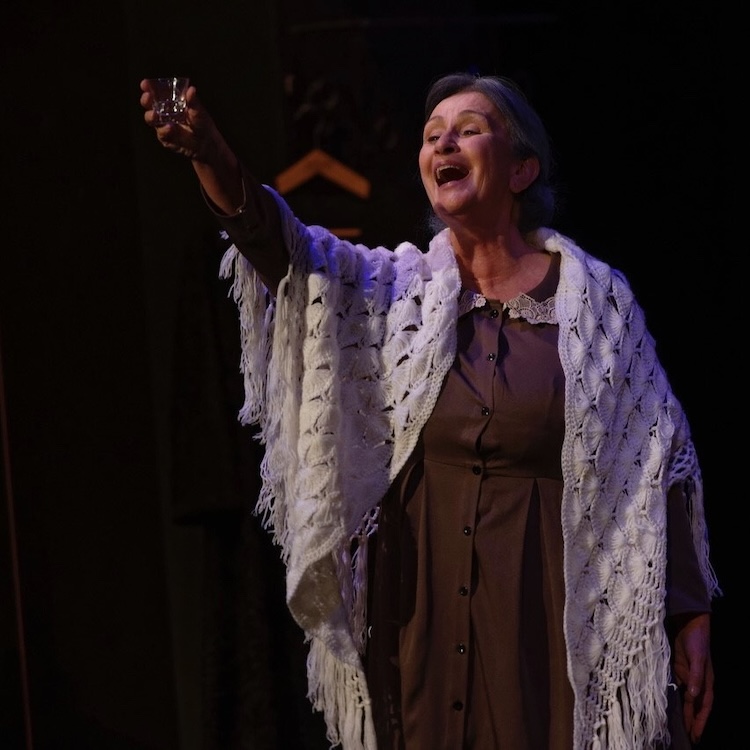
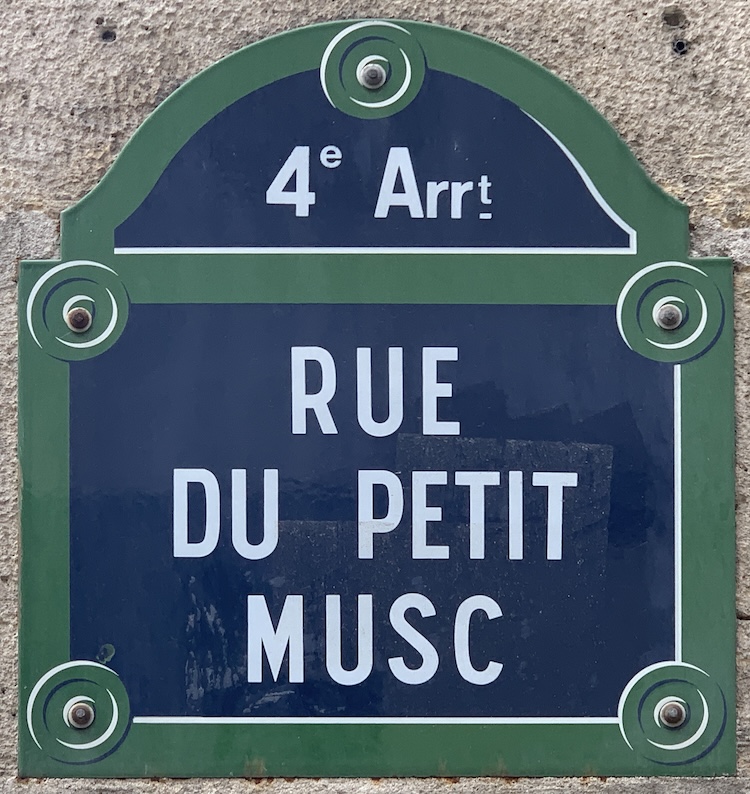
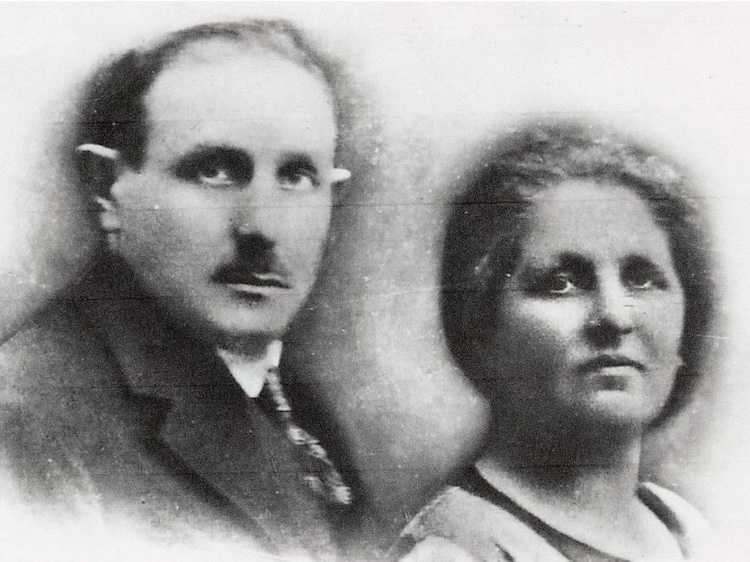
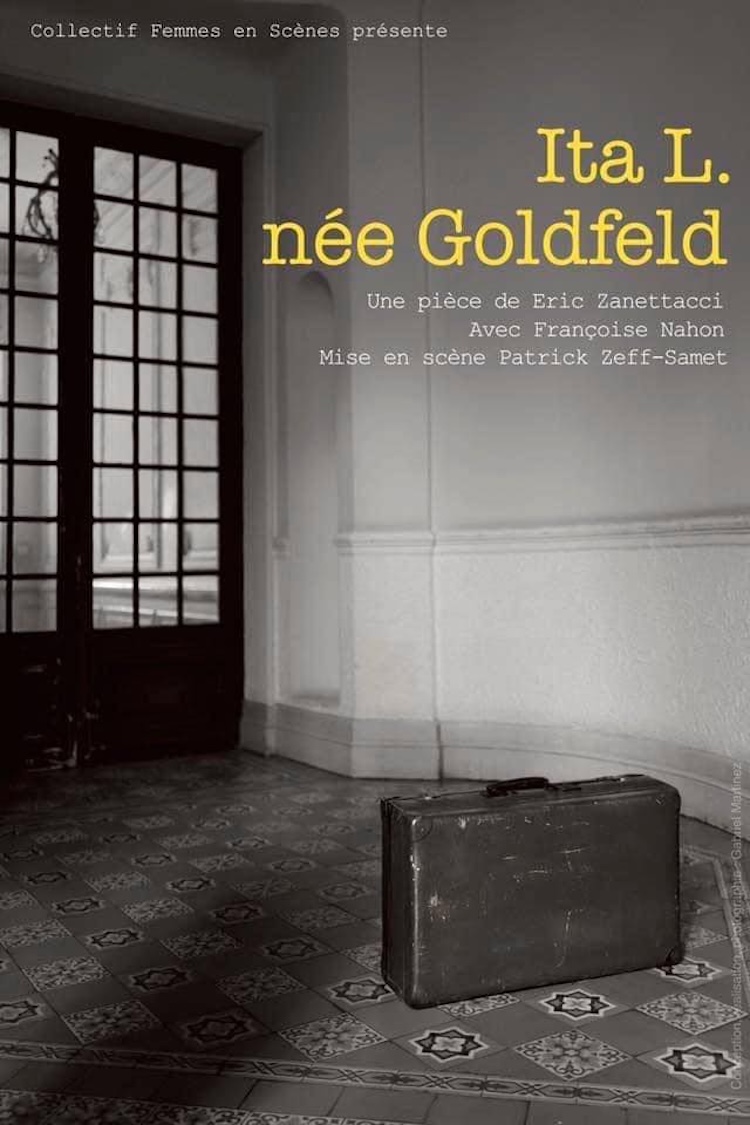
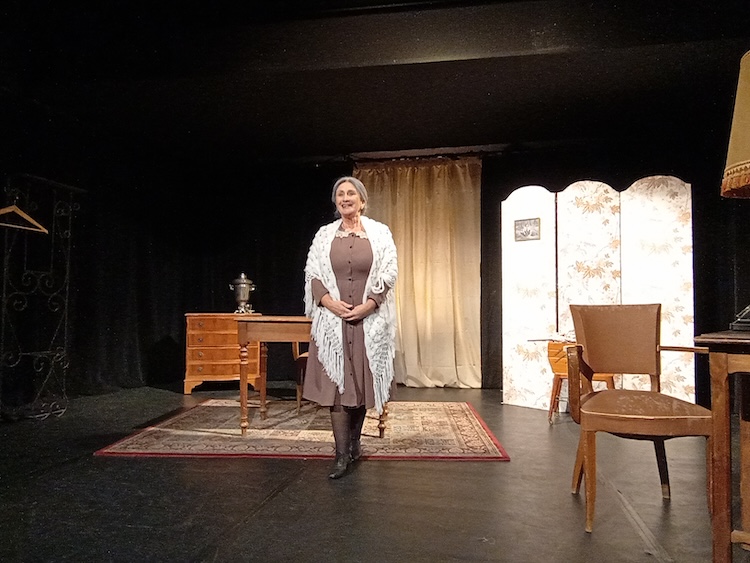


Leave a Reply